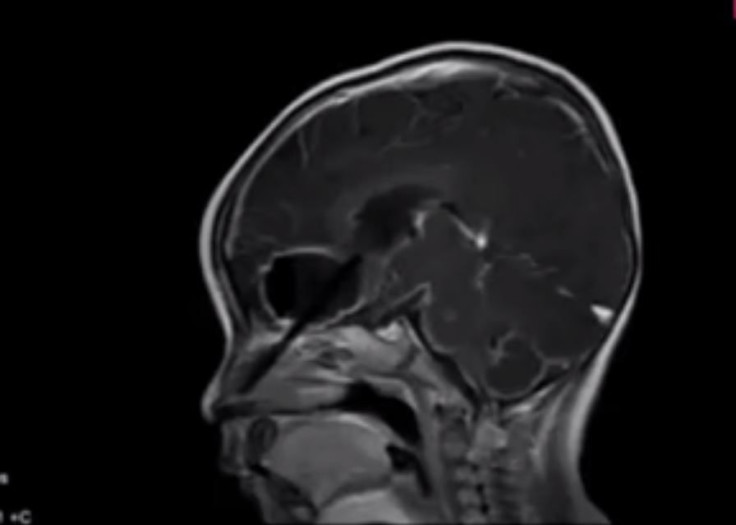Chinese Boy Falls On Chopsticks, Gets One Stuck In His Brain For 10 Days

It’s the type of freak accident that would only happen to a child. A toddler in Chaoyang City, China, recently underwent surgery to have a 2.4-inch segment of chopstick removed from his brain. He had been walking around with it stuck in his head for 10 days.
The 1-year-old boy’s parents said he had gotten a chopstick stuck in his head while eating with them on Jan. 27; he fell, and it got stuck up his nose. They removed the chopstick from his nose and took him to the hospital so doctors could clean up his wounds, somehow not realizing part of the chopstick was missing. And because the doctors didn’t perform an X-ray, he went home with only the recommendation his parents keep him under observation.
Fast forward 10 days, and the young boy began showing signs of fatigue and drowsiness. He and his parents returned to the hospital, where he underwent an X-ray, revealing the rest of the chopstick lodged into a part of his brain. “Half of the chopstick was totally stuck in his head from his nose.” said Li Shaoyi, the attending physician at Shengjing Hospital of China Medical University, where the boy was treated, according to CCTV America.
Shaoyi said that the chopstick had been lodged in a “nonfunctional” area of the brain, thus explaining why the boy’s parents hadn’t noticed any problems pertaining to language or motor movement earlier. Now, following his surgery to remove the chopstick, the boy is recovering in the hospital from an infection in the area of the brain the chopstick was in.
Coincidentally, this isn’t the first time a boy in China landed on a chopstick and ended up with it in his head. Just last September, a 2-year-old boy in Wuhan was also rushed to the hospital after his father found him with a chopstick stuck up his nose. CT scans showed the chopstick had been buried nearly 3 inches into his brain as well. Then earlier, in July, a nearly 2-year-old boy ended up with one in his brain after running with the utensil in his mouth, tripping, and banging it through. Fortunately, both survived without suffering any brain damage.
Considering chopsticks are used daily in Chinese and other East Asian cultures, such news might compel parents to be extra cautious around mealtime.
Published by Medicaldaily.com



























